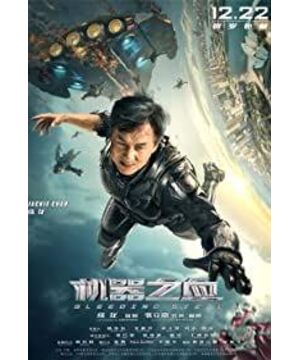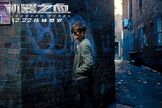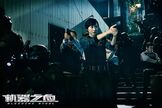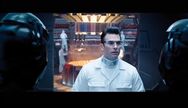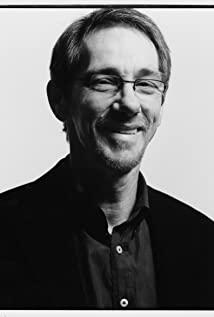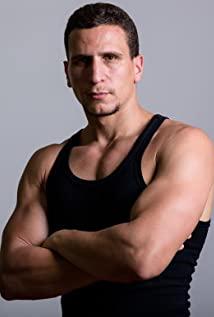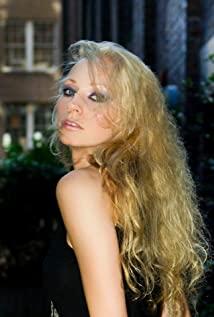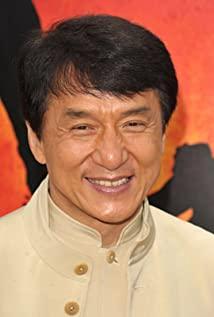To judge whether a movie is cliché or not, watching a few minutes is enough.
A group of SWAT and a group of bad guys fight fiercely.
SWAT, brave, cautious, and attentive.
The bad guy, who looks like an albino, is brutal, tyrannical, and can't be beaten to death.
In such a scene, it is difficult for the audience to immerse themselves in it and feel the excitement, danger, and urgency in the scene.
It's easier for people to jump out of the scene and ponder its clichés and clichés.
This scene is the opening scene of Jackie Chan's new film "Blood of the Machine" .
It's really a movie that doesn't see much novelty throughout.
The plot after the whole movie revolves around the battle between Jackie Chan and the bad guy leader.
The targets they guard and compete for are two scientific research achievements—
The development method of the mechanical heart and a special gene.
The bad guy wants to use this to restore his health, become undead, and build an undead mechanical team.
Jackie Chan, you have to stop the bad guys from achieving their goals.
Whether it is the characters' images, personalities, or the establishment of contradictions, there is nothing new in this film.
When commercial films are conceived, their starting point is often a whimsical idea that can immediately surprise people.
This whimsy is often the core plot selling point of the film.
If it is estimated to be correct, the core plot selling points of "Blood of the Machine" are the machine heart, immortality, and genetic mutation.
We can't imagine how such an idea could be passed at the script planning meeting.
More than a decade ago, it might have been eye-catching.
But until now, it no longer has the slightest possibility of surprising people.
"Blood of the Machine" is a follow-up film, the model it emulates, perhaps 2002's "Resident Evil."
It could also be Robocop from 1987.
Whether it is "biochemical wind" or "mechanical wind", it is outdated.
Come to think of it, the idea of a commercial film is not always fully market-oriented.
It is bound to be influenced by the creator's own taste.
Sometimes the impact is fundamental and comprehensive.
Jackie Chan's taste is created in the type craze again and again.
Unable to always keep pace with the times, this taste stayed and became his personality.
We can almost think of Blood of the Machines as an author's film.
Its author's seal, consisting of a set of elements—
An international cast, thrilling fights on city landmarks, gritty antagonistic relationships, stereotyped characters.
Even, it's stale, it's outdated, it borrows a dull aesthetic.
These elements, which used to belong to the boom, now belong only to Jackie Chan.
Of course, this is an exaggeration.
On the global screen, there are still several series that continue to replicate the above elements and maintain strong box office appeal.
Such as "Transformers", "The Fast and the Furious".
The difference is that their stories themselves constitute the brand, and the brand of Jackie Chan's films is only Jackie Chan himself.
The stories in his films, for the most part, were not enough to spawn a series.
However, the action superstar doesn't seem to need that kind of story either, it's enough with him.
Autobots fighting on the Great Wall can draw audiences into theaters.
Jackie Chan fighting people on the eggshell of the Sydney Opera House is also enough to whet the audience's appetite.
So, whether the idea of the robotic heart is clever enough, or not so important.
Looking around the world, Jackie Chan is the only one who has inherited the mantle of Buster Keaton.
Like Keaton, he makes full use of the environment and props around him, and dedicates thrilling action spectacles with great personality to the audience.
These actions, which do not rely on special effects, have a personality that is completely absent from Transformers and Fast and Furious.
An important scene of the film, as mentioned above, takes place at the Sydney Opera House, both interior and exterior.
The scene revolves around the villain's kidnapping of Jackie Chan's daughter and Jackie Chan's rescue.
There is no doubt that the reason why this plot is set here is mainly to let Jackie Chan show his fists.
As far as the plot is concerned, it can happen anywhere.
Such a setting not only makes the fight fresh, but also re-energizes the landmark of the Opera House.
It brings us back to the days when cinema was just invented.
At that time, movies were closely associated with circus, juggling, and magic.
The film as a whole is shrouded in monotonous "biochemical" and silvery metallic textures, but occasionally, it jumps out of it.
For example, the first appearance of Jackie Chan's daughter when she grew up suddenly pulled us into the world of youth campus films.
Although this cannot be regarded as an innovation, it can give people a very comfortable look compared to the dullness of most of the film.
The overall vividness of this passage is entirely due to Ouyang Nana's contribution.
To be honest, the design and performance of the rival drama involving Ouyang Nana were not brilliant.
Often times, it's not an exaggeration to say they're bad.
However, the girl's youth, pure beauty, and beauty firmly attracted our attention.
We were instantly convinced of Jackie Chan's concern for her.
Even if the film does not explain too much about the father-daughter relationship.
If the plot of this movie is cliché throughout, it does a decent job in at least two points.
First, it binds the scientific research results that the villain wants to snatch with Jackie Chan's daughter, played by Ouyang Nana.
She is the only carrier of the special gene. If the villain succeeds, Ouyang Nana will have to die.
The father and daughter are deeply in love, and Jackie Chan and the villain fight to the death, so there is sufficient and powerful psychological motivation.
Two, it's stingy, withholding a lot of important information and telling us just a little bit at a time.
In fact, the ending of the movie is basically no different from its opening. It is a showdown between Jackie Chan and the villain BOSS.
However, we don't know why they are fighting, what the villain is robbing, and why Ouyang Nana is so important.
It's the suspense that keeps us patient until the end of this movie.
It is a pity that the patience of the audience has not been rewarded commensurately with this effort.
These suspense are like fancy promotions, coaxing into our hands a slow-moving product that is of little use.
View more about Bleeding Steel reviews


